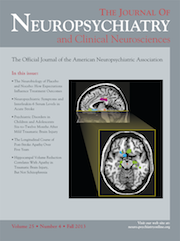Psychiatric Disorders in Children and Adolescents Six-to-Twelve Months After Mild Traumatic Brain Injury
Abstract
The objective of this study was to understand how novel psychiatric disorders (NPD) in children with mild traumatic brain injury (MTBI) are related to pre-injury variables, injury-related variables, and concurrent neurocognitive outcome. A group of 79 children, ages 5 to 14 years, who had experienced MTBI, were studied from consecutive hospital admissions with semistructured psychiatric interviews soon after injury (baseline); 60 children were reassessed 12 months post-injury. Standardized instruments were used to assess injury severity; lesion characteristics; pre-injury variables, including psychiatric disorder, family psychiatric history, family functioning, socioeconomic status, psychosocial adversity, adaptive functioning, and post-injury neurocognitive and adaptive functioning. NPD occurred in 17 of 60 participants (28%) in the 6–12-month interval after injury, with disorders that were significantly associated with socioeconomic status, psychosocial adversity, estimated pre-injury academic functioning, and concurrent deficits in adaptive functioning, academic performance, processing speed, memory, and expressive language. NPD was not significantly associated with pre-injury adaptive functioning, injury severity, family psychiatric history, pre-injury psychiatric disorder, lesion location, gender, or age at injury. These findings suggest that the short-term psychiatric morbidity associated with MTBI in children occurs more commonly than previously reported and is related to both pre-injury social factors and concurrent neurocognitive functioning.



